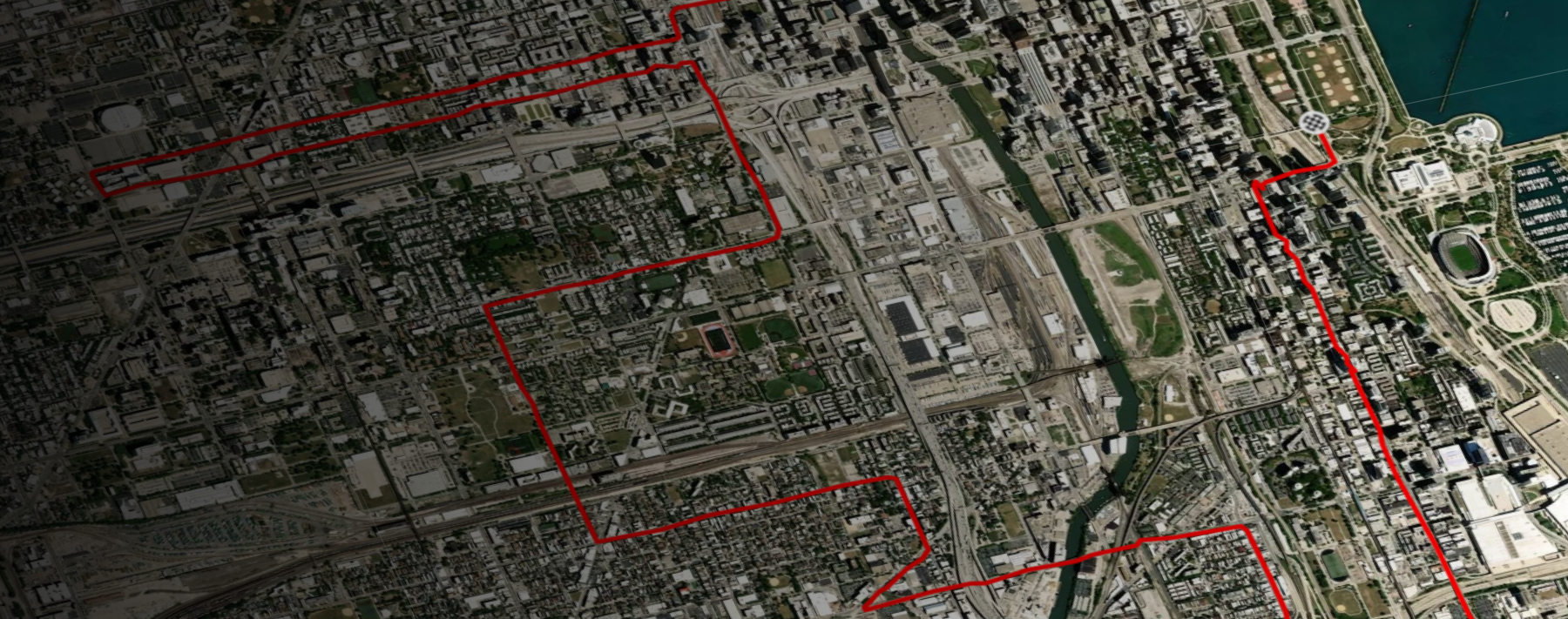Editor’s note: This article is part of a series. Click here for the previous article.
Gordon Graham here with some final thoughts on Family Eight of the 10 families of risk—technology risks. As I pondered how I would open this article during my morning walk, my brain went back to 1986 and some thoughts about the lawyer who mentored me during my early years as a young attorney.
Let’s call him Joel—because that was his name and he was a good man. I have probably mentioned this in past iterations of these “miscellaneous ramblings,” but I started my practice in 1982 doing police divorces. While the volume of cases was great, I quickly learned that too many cops don’t pay their bills. I came up with a brilliant solution to this problem early on—“I will do your divorce for free, all I need is a check for $250 up front for the court filing fee. But if you ever get a personal injury case in your family, you must promise me that I will get that case.”
Oddly enough, my divorce clients started bringing in personal injury cases. Way back then I did not have a staff or support team, so I made a deal with Joel: “I will bring personal injury cases to you and you can work the case and at the conclusion we can share the attorney fees.” That model worked very well for both of us for many years.
Which brings me to 1986. Mrs. G was pregnant with our first child and Joel’s daughter was pregnant with her first child. He and I were discussing video cameras one day at the office and we determined (based on comments from Consumer Reports) that the new JVC was the hot ticket. If my memory serves me right, it was priced at about $1,200. We each decided to get one.
Look for someone who will find a way to technically support what you want to accomplish and not default to “no.”
Here is where it gets interesting. Joel says, “I bet you $100 I can get a better price on this than you can.” Being the idiot, I took the bet. Later that day I went to several electronic stores looking for the best price I could get and ended up at a “Crazy Gideon’s” right off the Hollywood Freeway (I had bought other stuff from there and always got a good price). I walked out with a new JVC for $850.
The next morning I got to the law office and I saw that Joel had his JVC on his desk and he was reading the owner’s manual. “How much did you pay for it?” I asked. He told me $1,200. He then posed the same question to me. “$850,” I proudly responded, showing him the receipt, which he took from me.
He said, “Come with me,” then left the office and went to the store where he’d purchased his camera. He presented his purchase receipt and my receipt to the clerk. That store had a policy: “If you can find it for less within 30 days we will give you the difference plus 10%.” So he ended up getting a refund of $385 ($350 plus $35)—plus the $100 bet he now had won from me.
He smiled and told me, “I hope you learned something from this”—and I did! Later that year when Mrs. G was getting a larger vehicle now that we had a baby daughter, he went with us to the dealership and negotiated the price for us, and my gosh I learned even more that day.
Why have I bored you with this? Joel had almost 30 years in the law business and had been negotiating deals long before that. That was what he did. I was clearly out of my league thinking I could better him on that deal.
I am now 1,200+ words into this article, so here is my point, Chief. Some of you are fortunate to have a large enough budget where you can hire a Chief Technology Officer (CTO) or IT Manager who only works for your public safety agency—more on this later, but having your own works best. Do you even know what questions to ask? Can this person “snow you” with a bunch of “mobile-first IoT D5W patch me through to McGarrett res ipsa loquitor megabyte processor gigahertz” baloney?
In past writings I have admitted that I am a tech idiot, but in my travels I have met CTOs in government operations who know less about technology than I do—and I am the idiot?
With all this in mind, here are some thoughts for you to consider. As I mentioned earlier, I am hopeful you have your own tech person and are not dependent on the “city tech person.” Your personal tech expert works full time for you and answers to the command staff and fully understands the day-to-day field operation. If you are dependent on the “city tech person,” your department is just another department, like finance, streets, maintenance and trash collection.
Also, if there are multiple tech people in the city IT department, you may get a different approach from different people. You have specific and complex needs and it’s best to have your own tech pro who understands the challenges of a 24/7 public safety environment. In most states, this tech pro you hire will require a deeper background investigation (because of access to criminal justice databases or other sensitive information). It’s best to include that requirement in your job announcement so you won’t waste your time with people who cannot get past the background investigation.
Assess your current situation and capabilities before you start your search for a CTO. Determine what your organization needs. For instance, are you wanting to make a move toward mobility, which allows personnel to have full access to information regardless of assignment or proximity to their vehicle? If so, identifying someone with experience in this area could be really important. Conversely, if you’re fully deployed (all personnel have an issued smartphone), you still need someone with mobile experience—but be cautious of someone who tells you they want to move the agency from the existing operating system that is working and with which the personnel are familiar (e.g., switching from Android to IOS or vice versa). A switch can be costly, cause user issues and even result in lost capabilities due to lack of support for some app or software your agency currently depends on.
If you are dependent on the “city tech person,” your department is just another department, like finance, streets, maintenance and trash collection.
For larger agencies that have an IT staff, consider your existing personnel. Are they fully capable of supporting the agency but need a manager? Or, are they struggling to keep up with important areas like cybersecurity and CJIS compliance and need a CTO who is technically very strong?
Look for public safety experience. The 24/7, field-based operational environment is not the norm. Supporting computers in cars is a lot different than desktops. And CJIS adds a level of complexity that can be confounding to those who have not “evolved” with an agency over the last few years as tech and data have become the fuel that runs a modern public safety department. Be wary of someone who has municipal experience but not public safety experience, especially if you’re running a police department. Why? Because they tend to be non-supportive of law enforcement as a priority. They’re often jealous of the budget prioritization that goes to public safety. In other words, choose someone who has experience managing a public safety tech environment—and if you can’t find that, find someone from the private sector who clearly shows an affinity for public safety.
Perhaps most importantly, look for someone who will find a way to technically support what you want to accomplish and not default to “no.” Too many IT professionals have become the modern-day equivalent of the overly cautious attorney who is so risk-averse they hobble a department’s operational capabilities. A true public safety IT professional will find a way to support operational priorities and facilitate a secure tech environment that is intuitive for officers. If they don’t clearly espouse that perspective, find someone else.
Let me wrap up Family Eight with this. I knew a young officer who was building his own computer when he was a cop in the 1980s. He read all the magazines, knew all the terminology and was a true tech guy—way, way ahead of his time on the job and his age. He moved up in his department and ultimately became their tech guy and did a fantastic job. No salesperson could fool him—he knew more about their products than they did.
My guess is that some of you reading this piece fall into that category—you are the “real deal” in public safety tech issues. My hat is off to you and I have a second career for you. How much would it be worth to a chief of police or a fire chief to have you sitting next to them during the interview of candidates for the CTO/IT position? I think you could command quite a bit of money from a department knowing what you know—and preventing that chief from hiring a clueless fast talker (or buying software that will sit on a shelf because it did not work). Just a thought as you think about what you will be doing after your career in police work.
Finally, my second to last paragraph for this piece. Because I am the “tech idiot,” I reached out to my longtime friend, confidant and mentor Dale Stockton to help me with this article. His background in law enforcement operations is very impressive and if I were a chief of police, I would want to know him. He can be reached at dale@publicsafetyinsight.com.
Well, that wraps it up for Family Eight—the fastest growing family of risk you face in public safety operations. In our next visit together, I will give you some thoughts on financial and reputational risks. Until then, please work safely.




